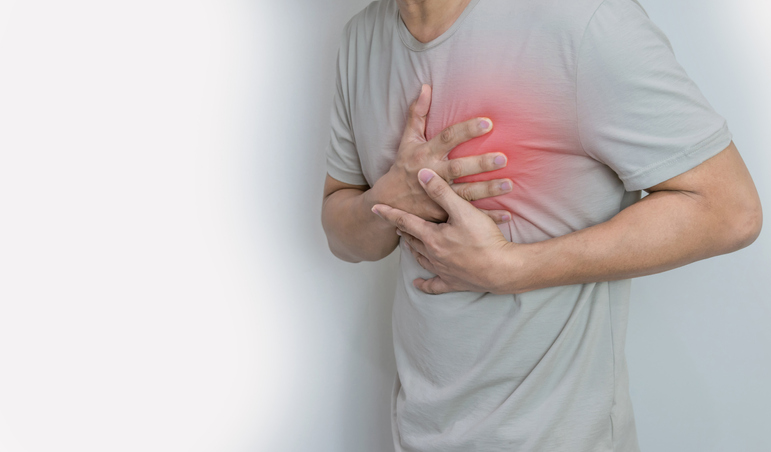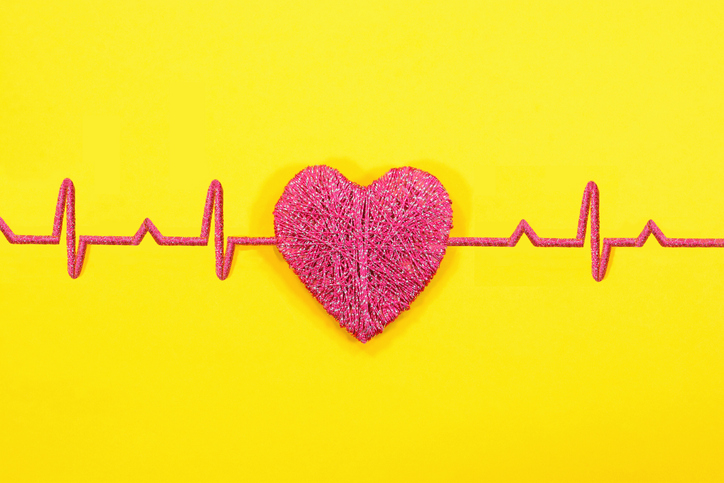Young Man Suffers Cardiac Arrest After Intense Workout. We Must Be Proactive

By Joy Stephenson-Laws, J.D., Founder
It’s Men’s Health Month, so it’s a great time to encourage the men in your life to take care of their bodies by eating right and being physically active. It is important to remember, however, that too much of a good thing can be bad. I recently came across a story about a young man that reminded me of this.
Thirty-year-old Ethan Bradshaw was basically a picture perfect example of a young, healthy man. He led a very active lifestyle and followed a healthy diet. One day, after a two-hour workout, things took a turn for the worse and it almost cost Bradshaw his life. Bradshaw was practicing Brazilian jiu-jitsu (a type of martial arts that involves ground fighting or grappling). It requires that you have good cardio stamina and muscular strength. After his two-hour session, Bradshaw experienced severe chest pain and numbness in his arm, according to a report from NBC’s TODAY.
The thirty-year-old athlete and state trooper just thought he was tired and maybe overdid it just a bit. When his condition did not improve, he fortunately had the intuition to seek some advice and consulted some colleagues who had medical training.
“My co-workers were like, ‘Dude, we believe you’re having a heart attack,’” Bradshaw said, according to the report from TODAY.
Not only was he having a heart attack, but he was also having a “massive heart attack.” It was an extremely scary situation for both Bradshaw and his pregnant wife Mickaela Bradshaw. Her husband was in such bad shape when he arrived at the hospital that he collapsed in the waiting room. Doctors had to perform CPR for 20 minutes and use a defibrillator to get his heart back in a normal rhythm. He had gone into cardiac arrest.
“I would have thought something would happen to me before him because he constant [ly] works out every day. He stays pretty healthy in his eating habits. He’s never had any prior health problems,” Mickaela said.
Bradshaw had to undergo surgery to have a heart pump installed, and he also developed pneumonia after being sedated and put on a ventilator. Fortunately, he was able to recover from the infection and heart attack. His doctors credit that to him seeking medical attention right after his colleagues warned him that they suspected his symptoms were not your normal post-workout fatigue.
“Heart disease does not discriminate by age. And while most patients do have risk factors for heart disease, such as high blood pressure, high cholesterol, diabetes, smoking, Ethan did not,” said Dr. Samuel Turner, who treated Bradshaw.
“We do see this in young patient [s] in their 20s, 30s and 40s that have heart attacks really prematurely without any obvious risk factors.”

- Pain or pressure in the center of the chest
- Chest, neck or back pain
- Shortness of breath
- Lightheadedness, nausea and vomiting
- More
Pace yourself and consult a competent healthcare practitioner if you participate in an intense sport or training. This is not the first time we have seen a healthy, young and athletic man suffer from a heart attack. Twenty-five-year-old soccer player Marcos Menaldo died of cardiac arrest during training.
As a mother to a twenty-something son who likes to stay active, I find these stories incredibly disturbing. I highly recommend taking a look at this pH Labs blog that discusses in detail cardiac arrest in young athletes and how we can be proactive.
I also think that it is important to acknowledge that men may feel pressure to workout intensely due to societal expectations that men are supposed to be strong and “manly.” During this Men’s Health Month it’s time to put this idea to bed. What is important is that we not only encourage a healthy life but also a safe one.
Read this pH Labs blog to learn about how men in particular can be proactive about heart disease.
Enjoy your healthy life!
The pH professional health care team includes recognized experts from a variety of health care and related disciplines, including physicians, attorneys, nutritionists, nurses, and certified fitness instructors. This team also includes the members of the pH Medical Advisory Board, which constantly monitors all pH programs, products, and services. To learn more about the pH Medical Advisory Board, click here.







